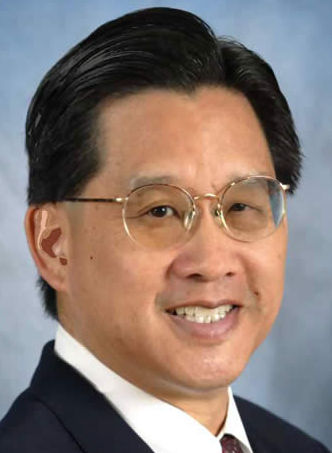HONOLULU (Legal Newsline) -- A federal judge has granted a motion by Hawaii Attorney General David Louie, allowing him to file a proposed interlocutory appeal in a lawsuit against a group of credit card issuers.
Louie filed a motion for certification of question for interlocutory appeal and a motion to stay proceedings in the U.S. District Court for the District of Hawaii Dec. 10.
Defendants JP Morgan Chase & Co. and Chase Bank USA N.A. filed a joint memorandum in opposition on their behalf and on behalf of defendants Capital One Bank USA N.A., Capital One Services LLC, Citigroup Inc., Citibank N.A., Department Stores National Bank, Discover Financial Services Inc., Discover Bank, DFS Services LLC, Bank of America Corp., FIA Card Services N.A., HSBC Bank Nevada N.A. and HSBC Card Services Inc. Dec. 27.
Louie filed a reply Jan. 4, and a hearing was held Jan. 18.
U.S. District Judge Leslie E. Kobayashi, in his Jan. 29 order, said he granted the attorney general's motion because the proposed appeal could "materially affect the outcome of the instant litigation."
"Having found that the attorney general has established all of the requirements necessary for an interlocutory appeal, this court finds that the attorney general should be allowed to file the proposed interlocutory appeal," he wrote in his 17-page order.
"Because the outcome of the interlocutory appeal will ultimately determine whether federal jurisdiction exists in this case, the court further grants the attorney general's motion for a stay of the instant proceedings pending the outcome of the (U.S. Court of Appeals for the) Ninth Circuit's review."
Louie originally filed six complaints against the credit card issuers in the state's First Circuit Court in April.
The attorney general alleges that the credit card companies have engaged in "deceptive and predatory practices" in marketing and selling ancillary credit card products -- such as payment protection plans, identity theft protection plans and extended warranties -- to Hawaii residents.
In particular, Louie alleges that the defendants have targeted particularly vulnerable consumers, including the elderly and those with credit problems.
The defendants quickly removed each of the six cases to the federal court. They asserted federal jurisdiction based on the Class Action Fairness Act and jurisdiction based on the complete preemption doctrine.
In June, Louie filed a motion to remand and for costs and fees in each of the six cases.
In November, the federal court issued an order denying the attorney general's motion.
In the remand order, the court concluded that removal was proper based on the complete preemption doctrine.
In particular, the court found that the payment protection plans and other ancillary products at issue in the cases were debt cancellation contracts and/or debt suspension agreements, and that the fees assessed for the products were interest for purposes of the National Bank Act.
As such, the court concluded that the claims asserted by Louie under state law are preempted and there is federal question jurisdiction, and thus denied the attorney general's motions to remand.
In the instant motion, Louie argued that an interlocutory appeal is appropriate because the existence of federal jurisdiction is a threshold issue. He further argued that there are unsettled questions of law in the case, including whether the court, in its remand order, applied the appropriate definition of "interest" for purposes of the National Bank Act, and whether his allegations may be characterized as a usury claim even though he did not expressly raise a state anti-usury claim in the complaints.
The attorney general also argued that an interlocutory appeal would materially advance the ultimate termination of the litigation -- if the Ninth Circuit holds that there is no removal jurisdiction, the ruling will terminate the case.
"As stated previously, it is clear that the attorney general's proposed interlocutory appeal may facilitate the disposition of this action. Were this court to deny the motion, and the case proceed to summary judgment or trial, the district court and the parties will have unnecessarily wasted significant time and resources if the Ninth Circuit ultimately determined on appeal that federal jurisdiction did not exist," Kobayashi wrote.
"This court therefore finds that the attorney general's proposed interlocutory appeal may materially advance the termination of the litigation."
From Legal Newsline: Reach Jessica Karmasek by email at jessica@legalnewsline.com.
Hawaii AG's suit against credit card issuers stayed pending Ninth Circuit review

ORGANIZATIONS IN THIS STORY